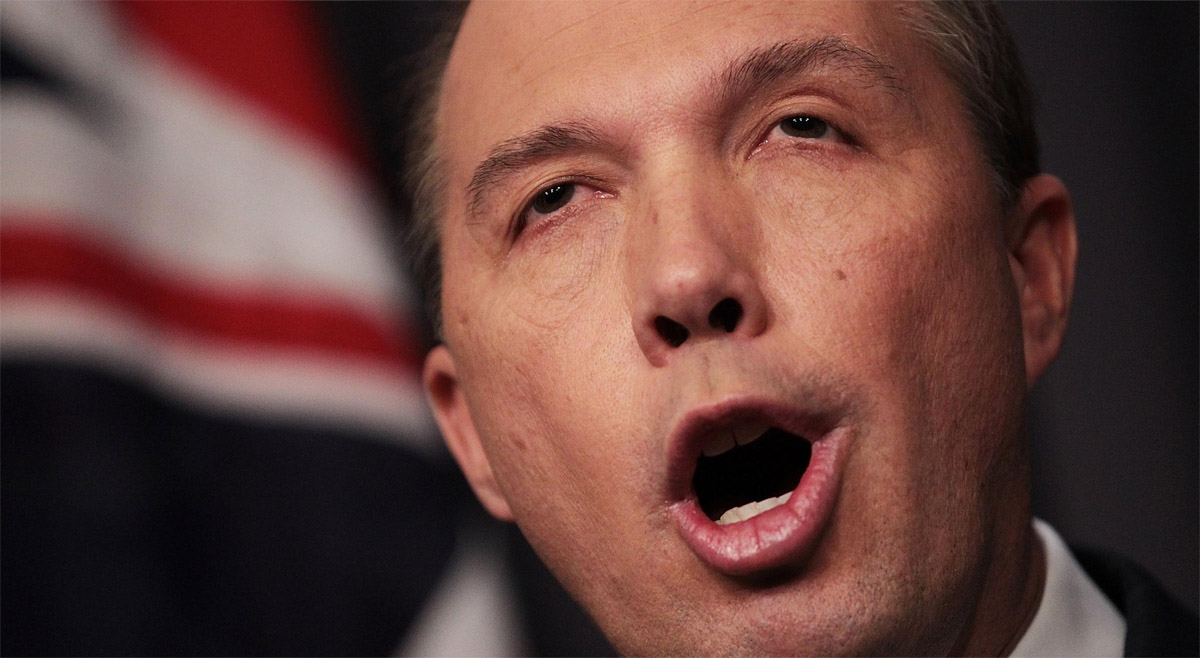Joel Jenkins
Who won the Potato Wars?

Peter Dutton’s grand plan to finance his retirement with taxpayer-funded defamation litigation against everyone who’s ever shit-posted at him on Twitter has gone the way of everything else he’s ever touched: down in flames.
Of course, Spud’s excellent idea that we should all pay his legal costs when he sues punters never got off the ground, being as it came from the same top-quality Morrison government brains trust that produced such gems as ‘let’s get 16-year-olds driving forklifts’ and ‘we’ll let you destroy your own super to buy a house you can’t afford’.
Which means that, now he’s lost a Federal Court case against an unemployed climate activist, Dutts is looking at coughing up for his own lawyers’ fees and – subject to what the court decides – almost inevitably Shane Bazzi’s costs too. The fact that Bazzi was crowd-funded will just stick Pete’s abject loss a little more firmly down his throat.
Not that we should get too schadenfreudy about this; defamation litigation is a mug’s game and Bazzi could just have easily lost his appeal, in which case we’d all be in hiding lest we catch a glimpse of Dutton’s smile.
As you’ll recall, what Bazzi tweeted were six words: ‘Peter Dutton is a rape apologist’. He did this late one night last year, in the midst of the furore over Brittany Higgins, specifically which Scott government ministers knew what about her rape allegation, and when. Dutton had come out and acknowledged that he’d been told at some stage, and helpfully dropped the ‘he said, she said’ clanger into the conversation. Good one, Spud.
Bazzi may have had that in mind when he tweeted, but he didn’t reference it. Instead, his tweet linked an article in The Guardian which had reported Dutto’s earlier charming claim that female refugees on Nauru were making false rape allegations, ‘trying it on’ as a means of getting to Australia.
Dutton sued, arguing that Bazzi’s tweet had defamed him by conveying to readers that he ‘condones’ or ‘excuses’ rape. The judge who heard the case agreed, finding that the ordinary reasonable reader would have read the tweet as saying that Dutton excuses rape (which would be very bad), but not that he condones it (which would be even worse).
Now, at this point you might be asking two questions. The first is ‘why are we arguing about the meaning of “excuse” and “condone” when the tweet didn’t say either of those words?’ Fair question, but that’s the magic of defamation law: it’s not about what’s written or said, but what it means. It is by such intellectual indulgences that lawyers maintain our monopoly, don’t you know.
The second question is ‘hang on – the Guardian article wasn’t about excusing, condoning, defending or apologising for rape at all. It was about Dutton’s weird-ass obsession with demonising refugees by labelling them everything from terrorists to rapists to fake-rape accusers. How did Bazzi get from that to “rape apologist”? It doesn’t make sense?’
You’ve got it in one: it doesn’t make sense at all, and that’s what made this whole case a shit-show. The judge commented several times in his decision that he was pretty sure Bazzi didn’t know what the word ‘apologist’ actually means, so he helpfully set out all the dictionary definitions and Cardinal Newman’s detailed analysis of the concept of ‘apologia’ which he wrote in the 19th Century I shit you not. Trés relevant to working out what kids today might think a tweet means.
On appeal, the three judges of the Full Court of the Federal Court went completely the other way, but ironically on pretty much the same basis – that Bazzi was talking rubbish. They said the primary judge had gone wrong by focusing too intently on the meaning of the single word ‘apologist’ and not paying enough attention to the whole context of the tweet, especially the attached Guardian article.
What would an ordinary Twitter reader have thought when they saw Bazzi’s tweet? Probably not much about Cardinal Newman’s treatise on apologia. They would have seen the ‘rape apologist’ line, gone ‘whoa’, then taken in the Guardian article which was obviously about Dutton’s personal attachment to the fake rape allegation on Nauru myth, then gone back to the tweet.
Then, according to the appeal judges, the hypothetical reader would have thought ‘um, not sure how that makes Spud a rape apologist, I guess Bazzi thinks it does but really he’s just taking a wild swing at Dutton isn’t he, cool (or not).’
In legal terms, what all this means is that the defamatory imputation Dutton had pleaded – that Bazzi had accused him of excusing rape – simply was not conveyed by the tweet at all. What was conveyed is anyone’s guess, really. But if the imputation doesn’t arise, the case is over.
This case was bad from the start, in that Bazzi’s tweet was incoherent and a bit stupid, and Dutton over-reacted ridiculously to it. It was never going to be a great test case for anything, and that’s how it’s turned out. If it deters over-sensitive politicians from suing randoms who’ve had a crack at them on social media, good. If it gives the randoms a bit of pause for thought before they make shit up, also good.
But, as always when the defamation circus has been in town, the notorious case of Spud v Shane produced only one winner: the lawyers.
Title image credit: Digitally edited artwork based on photo by AAP/MICK TSIKAS






